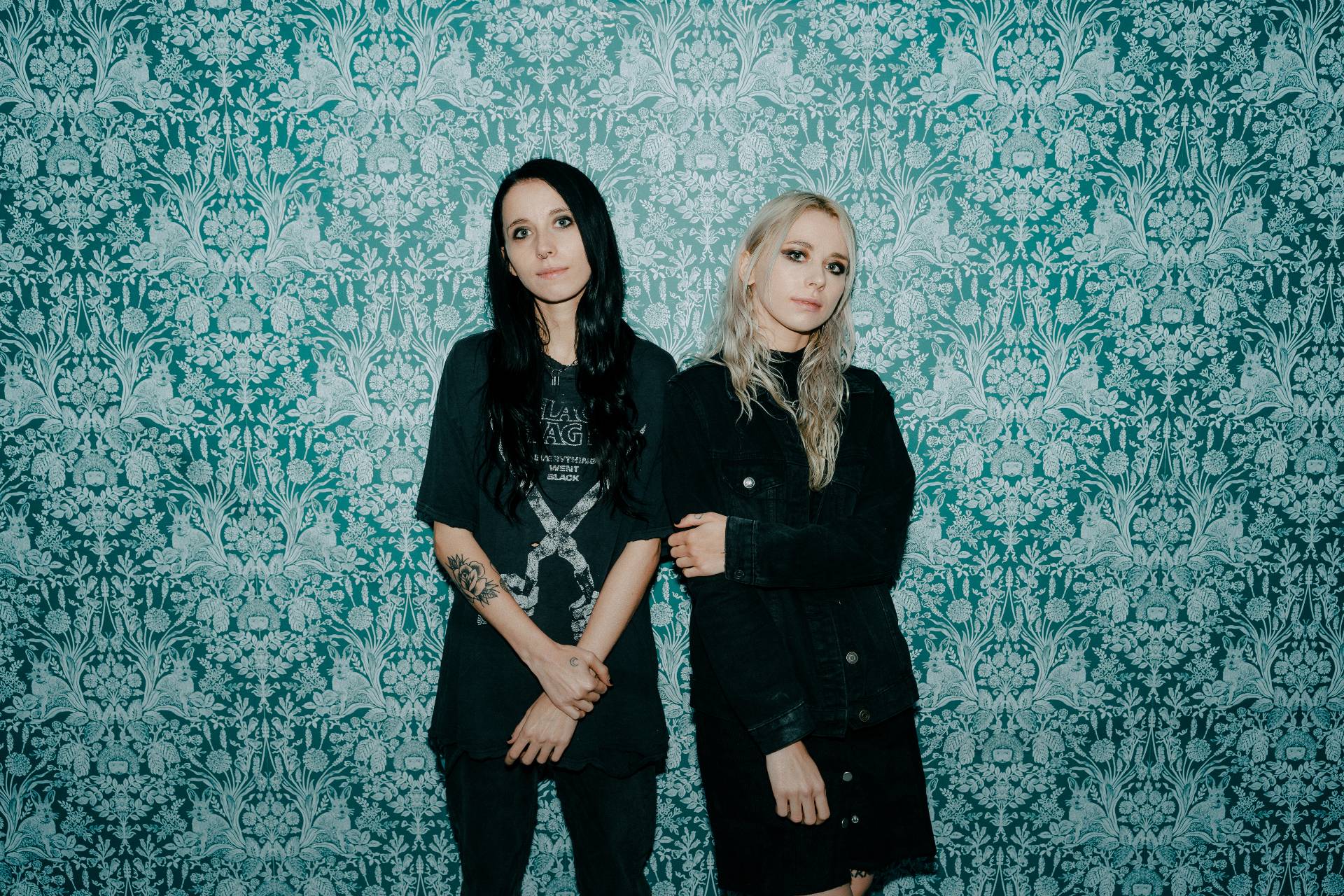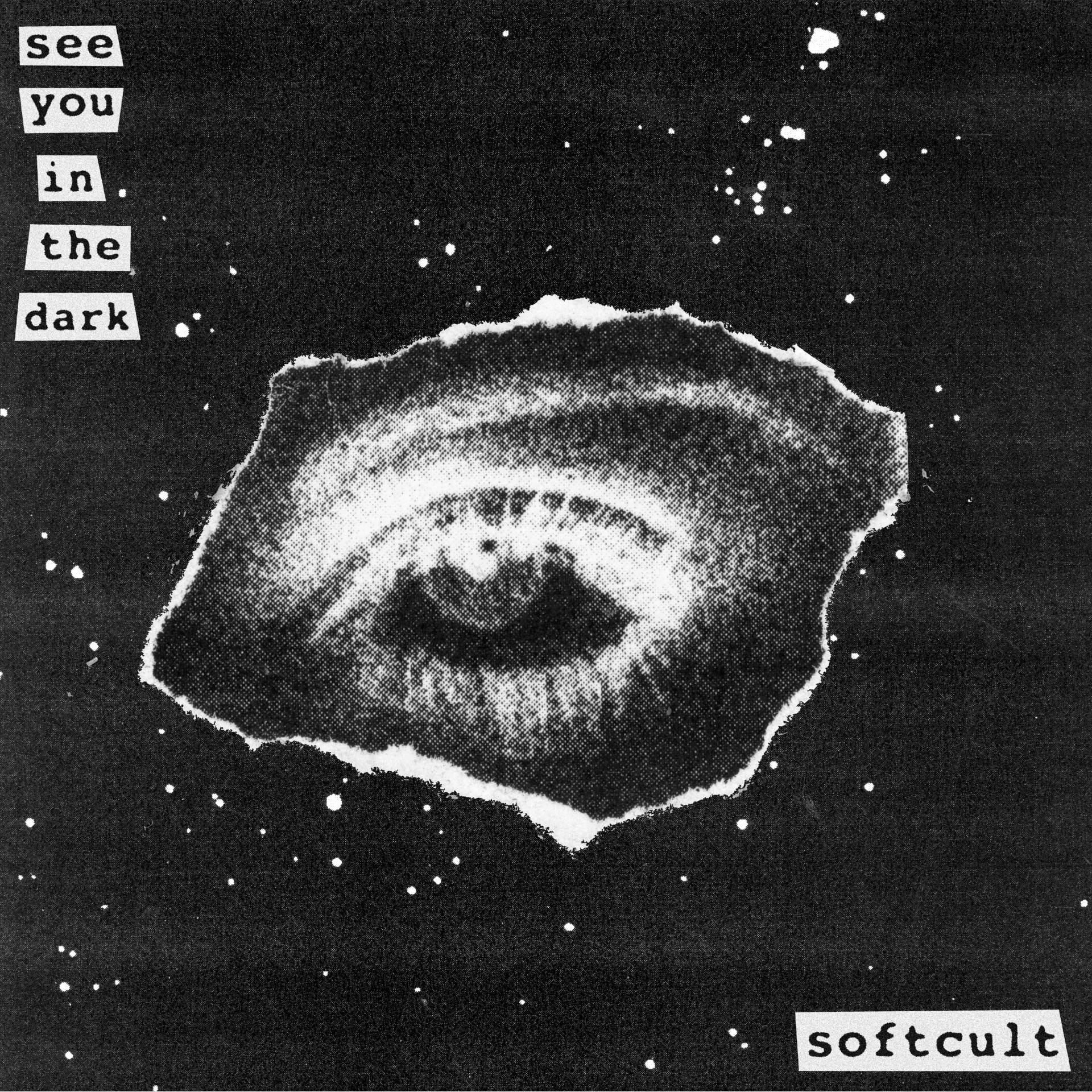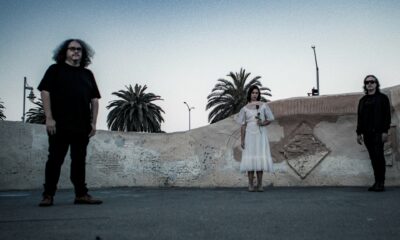Alternative/Rock
Softcult Interview: Phoenix Arn-Horne Discusses Love, Rights, New Music, Touring, and Beyond
Just ahead of their EU/UK tour and ‘See You in the Dark’ EP release (Easy Life Records), Hannah Pike chatted with Softcult’s Phoenix Arn-Horne about touring, music, and much more!

Canadian Riot Grrrl duo Softcult is drawing a lot of attention to themselves lately, and for good reason. The likes of Hayley Williams and Oli Sykes have been singing their praises, and they have been gaining accolades from outlets such as Alternative Press, Kerrang!, Gay Times, DIY and The Line Of Best Fit.
Formed of non-binary twins Mercedes and Phoenix Arn-Horne, their style is difficult to pin down; they land somewhere amongst punk, grunge, shoe-gaze and dream-pop. Their strong DIY ethic can be evidenced in the fact that production, writing engineering, artwork and video directing/editing are all covered by the talented pair themselves.
They already have supported bands, including Incubus and MUSE and are heading for greater things. Just ahead of their EU/UK tour and the release of their new EP, See You in the Dark (out March 24th via Easy Life Records), Hannah Pike managed to fire questions at Phoenix to discover a little more about what lies within Softcult. We think you’ll be impressed.
When writing your new single “Love Song,” what themes were you looking to explore? Were you telling a story?
Phoenix Arn-Horne: “I think we wanted to convey the helplessness you feel when falling in love with someone. It’s scary to give up control like that, to allow yourself to surrender to it completely because there’s always the fear that, eventually, it could all come to an end. But at the end of the day, letting go and loving someone is one of the most powerful things we can experience, and the risk is worth the reward.”
Creating music of the “riot grrrl” genre, who and where do you draw inspiration from for your music? Do you think your inspiration has changed as your style evolves?
“We’re obviously very influenced lyrically by the likes of Bikini Kill, Brat Mobile, X-Ray Specs etc., but I think recently we’ve been drawing a lot from the new-gen (I’m not sure if they’d consider themselves Riot Grrrl bands or not but I think they’re definitely very empowering to women and femme people), Kills Birds, Petrol Girls, Scowl, Pom Pom Squad, Beach Bunny and Pinkshift to name a few.”
What kind of issues does your music explore? And why is this important to you both?
“We try to write empowering music for people that maybe haven’t seen themselves represented in the alternative scene too often. Having a woman and a queer person in the band, there’s obviously issues we’ve both experienced in our lives that we wish we wouldn’t have had to go through, and we know those are just the tip of the iceberg compared to what others have had to endure. We want to shine a light on those issues, start conversations, and hopefully empower people to stand up against them. While we might never be able to fully relate to each other’s situations, we can always try to understand and empathize and look out for each other when we see unfairness and discrimination.”
From your zine ‘SCripture,’ I can see that you’re very involved in politics and activism. Could you tell me more about how you got into this and about the zine itself?
“I think we’ve always had a political streak; our parents were always very anti-establishment and taught us to question everything and keep a close eye on your rights because it’s insane how quickly and how quietly they can be taken away. When we were kids and started listening to bands like Rage Against The Machine, those songs had a real impact on us, and so we tended to seek out bands that were more outspoken socially and politically in their lyrics.
“Then, in our early twenties, we saw a documentary called The Punk Singer and discovered Bikini Kill and the Riot Grrrl movement, and it really resonated with us. A huge part of that movement was the fanzine culture around it. It’s just another way to spread your message and hopefully connect with collaborators and like-minded people. In our opinion, where the original movement ultimately fell short was its lack of intersectionality, and I think that’s what we try to contribute to this next wave of Riot Grrrl. Real feminism includes the trans community, people of colour, and anyone that believes in equality, and we try to spread that message in our zines.”
Would you say that being a queer band gives you some sort of forgone expectation to be political? Or to provide a voice for your community?
“In our case, I wouldn’t consider it an ‘expectation,’ but more of a ‘responsibility.’ As much as I wish this wasn’t the case, I think right now, being an openly queer person means your whole existence becomes politicized and ‘up for debate.’ Simply living as your true authentic self is often an act of resistance. It isn’t fair, but neither is having to hide who you are, and if we can, in our small way, provide representation for the queer community and show people that we DO belong and have every right to be here, then we’re going to do it.
“I wish I would’ve seen more queer people in bands when I was growing up and discovering myself; I think it would’ve made a world of difference. I’m still learning to accept myself and be true to myself, so I hope if other people in the same boat see me do that publicly, they’ll know that their identity is valid and they shouldn’t be afraid to be themselves because who they are is beautiful.”
What challenges have you faced as a trans and femme duo when it comes to the music industry? Do you feel that there are still prejudices?
“A lot of the time, it feels like we have to work 10 times harder to be taken seriously. Sometimes it’s felt like certain opportunities didn’t belong to us because we were different from other artists in our peer group. Sexism runs so deep in the industry that there’s literally been times when we were turned down or not even considered for tours because there was already a ‘female-fronted’ band on the line-up, which is really unfair because that logic just doesn’t apply to bands with male members. Another challenge that comes with the territory, unfortunately, is being sexualized. People often see women and femme presenting people as objects or gimmicks, and it’s hard to gain the same respect that’s granted to male artists because people don’t see you on the same tier. Obviously, a lot has changed in the last few years, and I think there’s a lot of good efforts being made, but ultimately it’s still not an even playing field, and that’s even more true for women and people of colour in the industry.”
In contrast to my last question, what are some of the joys you’ve found from being queer in the music industry?
“I would say finding community. Sharing and hearing stories, meeting incredible people, and forming lifelong bonds. Feeling seen and seeing others for who they are is so amazing and something that we don’t take for granted. We’re privileged to be in the position we are where we can outwardly express ourselves, make friends, and work with people who love us for who we are and support us in that.”
Moving onto your upcoming tour. Live shows are an opportunity to connect with an audience; what kind of atmosphere do you like to create at your shows?
“We try to create a safe atmosphere, one where everyone feels welcome and seen, and maybe a place to escape the outside world a bit, but also a place where we can confront serious shit. We hope anyone that comes to our shows leave feeling more empowered than when they came in.”
How do you build a relationship with your audience?
“I think anytime you write a song that you personally relate to means that other people can probably also relate to it too, so in a way, through getting to know ourselves, we’re also getting to know the people that might resonate with our music. Also, taking submissions for our zine and being able to collaborate with the people that listen to our band has been really cool; I feel like it’s just another way to connect and relate and share our stories.”
What are you most excited for on your upcoming tour? Is there any venue, in particular, you are looking forward to playing in?
“We’re all really looking forward to Toronto and London, I think, because those shows are sold out, and we’ll have some friends and family there, and obviously the Asian leg is really exciting too; it’s going to a lot of places we’ve never been before which is always cool.”
Before forming Softcult, I see that you played together in a band called Courage My Love. Has music always been a passion you shared growing up?
“For sure. My sister and I have been making music and playing in bands together since we were kids. I’ve never been in a band without her. I think it’s something that has kept us close throughout our lives. She’s my favourite person to collaborate with, she finishes a lot of my sentences creatively, and I think she really is my musical soulmate in a lot of ways. I can’t imagine making music with anyone else.”
And finally, what’s next for ‘Soft Cult’? Can we expect to see any bodies of work being released in the future?
“We’ve got our EP “See You In The Dark” coming out in March, and we’re really excited for that. When we get back from the tour, we’ll be in the studio working on our next project, so rest assured there won’t be a shortage of music in the next year.”
-

 Music7 days ago
Music7 days agoTake That (w/ Olly Murs) Kick Off Four-Night Leeds Stint with Hit-Laden Spectacular [Photos]
-

 Alternative/Rock1 day ago
Alternative/Rock1 day agoThe V13 Fix #011 w/ Microwave, Full Of Hell, Cold Years and more
-

 Alternative/Rock1 week ago
Alternative/Rock1 week agoThe V13 Fix #010 w/ High on Fire, NOFX, My Dying Bride and more
-

 Features7 days ago
Features7 days agoTour Diary: Gen & The Degenerates Party Their Way Across America
-

 Culture1 week ago
Culture1 week agoDan Carter & George Miller Chat Foodinati Live, Heavy Metal Charities and Pre-Gig Meals
-

 Music1 week ago
Music1 week agoReclusive Producer Stumbleine Premieres Beat-Driven New Single “Cinderhaze”
-

 Indie1 day ago
Indie1 day agoDeadset Premiere Music Video for Addiction-Inspired “Heavy Eyes” Single
-

 Alternative/Rock2 weeks ago
Alternative/Rock2 weeks agoThree Lefts and a Right Premiere Their Guitar-Driven Single “Lovulator”












